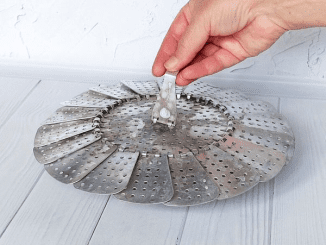
When it comes to acne, most of us want quick fixes. Shelves are packed with chemical creams, medicated gels, and dermatologist prescriptions. But there’s also another path that many people are curious about—natural remedies. From tea tree oil to aloe vera, natural solutions promise clearer skin without harsh side effects. But do these remedies actually work, or are they just overhyped internet trends? Let’s dig deeper.
Why People Turn to Natural Remedies
Natural acne treatments are appealing for a few reasons. First, they’re seen as safer and gentler, especially for sensitive skin. Many also believe natural ingredients are healthier because they avoid synthetic chemicals. Plus, they’re usually cheaper and easier to find—you might already have some in your kitchen.
But just because something is natural doesn’t mean it’s automatically effective. Remember, poison ivy is natural too, but you wouldn’t rub it on your skin. So the key question is: which natural remedies actually help acne, and which don’t?
Tea Tree Oil: Nature’s Antibacterial Hero
One of the most popular natural remedies is tea tree oil, known for its antibacterial and anti-inflammatory properties. Studies show that diluted tea tree oil can reduce redness and kill acne-causing bacteria. It’s not as harsh as benzoyl peroxide, but it still works on mild to moderate acne.
However, you should never apply undiluted tea tree oil directly to your skin—it’s too strong and may cause irritation. A safe approach is mixing a few drops with a carrier oil like jojoba or using a product that already contains it.
Aloe Vera: Soothing and Healing
If your skin feels inflamed or irritated, aloe vera can be a lifesaver. It has anti-inflammatory and soothing properties that calm redness and help heal acne lesions faster. While aloe alone may not clear deep acne, it works beautifully when paired with other treatments.
Think of aloe vera as the “calm after the storm.” It doesn’t fight the root cause of acne directly, but it helps your skin recover and feel balanced.
Honey: More Than Just Sweetness
Yes, honey isn’t just for your tea—it can also help your skin. Raw honey, especially manuka honey, has antibacterial and healing properties. Applying a thin layer as a mask may help reduce acne-causing bacteria while keeping your skin hydrated.
Of course, honey won’t erase cystic acne overnight. But as a natural spot treatment or face mask, it can gently support your routine.
Video : Top 5 Dermatologist Approved Natural ACNE Remedies
Green Tea: A Secret Weapon Against Oil
Drinking green tea has long been praised for its health benefits, but applying it topically may also help acne. Green tea extract contains antioxidants that reduce oil production and calm inflammation. You can use skincare products with green tea or apply cooled green tea bags directly to your skin.
It’s like giving your skin a refreshing cup of tea—it won’t solve everything, but it supports your skin’s natural balance.
Apple Cider Vinegar: Use with Caution
Some swear by apple cider vinegar (ACV) as a toner because it’s acidic and can kill bacteria. While it sounds promising, the truth is ACV is very harsh on skin. If not diluted properly, it can cause burns and irritation.
If you want to try it, always mix one part vinegar with three to four parts water. But honestly? There are gentler options that work just as well without the risks.
When Natural Remedies Aren’t Enough
Here’s the reality check: natural treatments often work best for mild acne or as a complement to medical treatments. If you have severe, cystic acne, relying only on DIY masks won’t cut it. In those cases, it’s smarter to see a dermatologist who can prescribe stronger solutions while you use natural remedies to soothe and support your skin.
Think of natural remedies as assistants, not the main boss—they help, but they can’t run the show alone.
Tips for Using Natural Acne Remedies Safely
- Always patch test before applying anything new to your face.
- Avoid mixing too many remedies at once—it can irritate your skin.
- Stick with a consistent routine for at least a few weeks before judging results.
- Pair natural remedies with good habits: drink water, eat balanced meals, and sleep enough.
Consistency is what turns small changes into real results.
Video : How to Treat ACNE the Holistic Way!
Conclusion
Natural acne treatments like tea tree oil, aloe vera, honey, and green tea can be surprisingly effective—especially for mild breakouts. They’re affordable, accessible, and gentle when used correctly. However, they’re not miracle cures, and they won’t replace medical treatment for severe acne. The best approach? Use natural remedies as part of a balanced routine while paying attention to your lifestyle and, if needed, seeking professional help. Clear skin takes time, and with the right mix of patience and care, you can find what works best for you.


